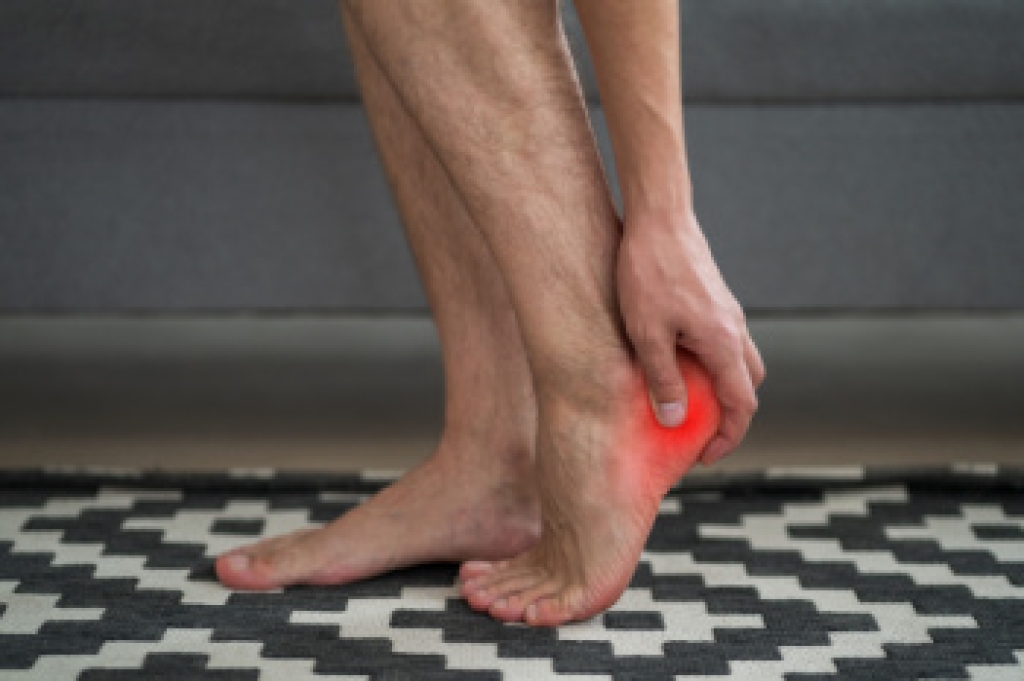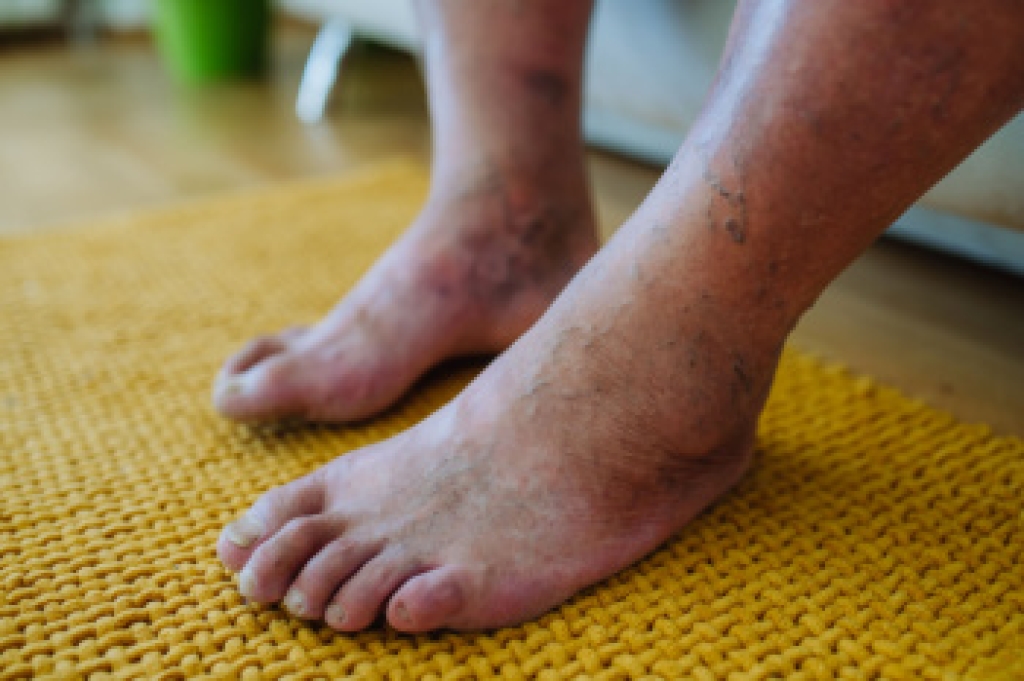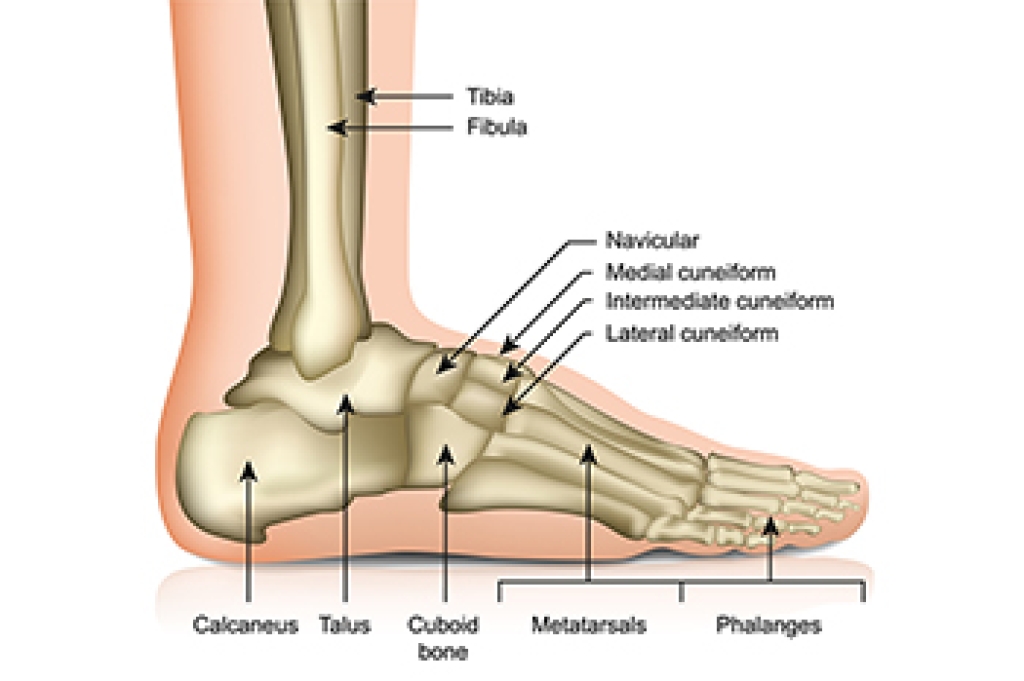
Foot pain can arise from a variety of medical conditions that affect circulation, metabolism, or joint health. Vascular disease may reduce blood flow, causing cold or painful feet. Diabetes can lead to neuropathy, resulting in numbness, tingling, or slow-healing wounds. Thyroid disorders may cause swelling, stiffness, or changes in foot structure. Gout produces sudden, intense joint pain and redness, often in the big toe. Bunions create a visible bump, discomfort, and difficulty walking. Recognizing symptoms early is essential for preventing complications. A podiatrist can evaluate underlying causes, provide customized treatment plans, and offer interventions like orthotics, footwear recommendations, or specialized care to manage pain and improve mobility. If you have any type of foot problem, it is suggested that you promptly consult a podiatrist who can accurately diagnose and treat various foot and ankle conditions.
Foot Pain
Foot pain can be extremely painful and debilitating. If you have a foot pain, consult with Dr. George Yarnell from Pennsylvania. Our doctor will assess your condition and provide you with quality foot and ankle treatment.
Causes
Foot pain is a very broad condition that could be caused by one or more ailments. The most common include:
- Bunions
- Hammertoes
- Plantar Fasciitis
- Bone Spurs
- Corns
- Tarsal Tunnel Syndrome
- Ingrown Toenails
- Arthritis (such as Gout, Rheumatoid, and Osteoarthritis)
- Flat Feet
- Injury (from stress fractures, broken toe, foot, ankle, Achilles tendon ruptures, and sprains)
- And more
Diagnosis
To figure out the cause of foot pain, podiatrists utilize several different methods. This can range from simple visual inspections and sensation tests to X-rays and MRI scans. Prior medical history, family medical history, and any recent physical traumatic events will all be taken into consideration for a proper diagnosis.
Treatment
Treatment depends upon the cause of the foot pain. Whether it is resting, staying off the foot, or having surgery; podiatrists have a number of treatment options available for foot pain.
If you have any questions, please feel free to contact our office located in Lansdowne, PA . We offer the newest diagnostic and treatment technologies for all your foot care needs.








